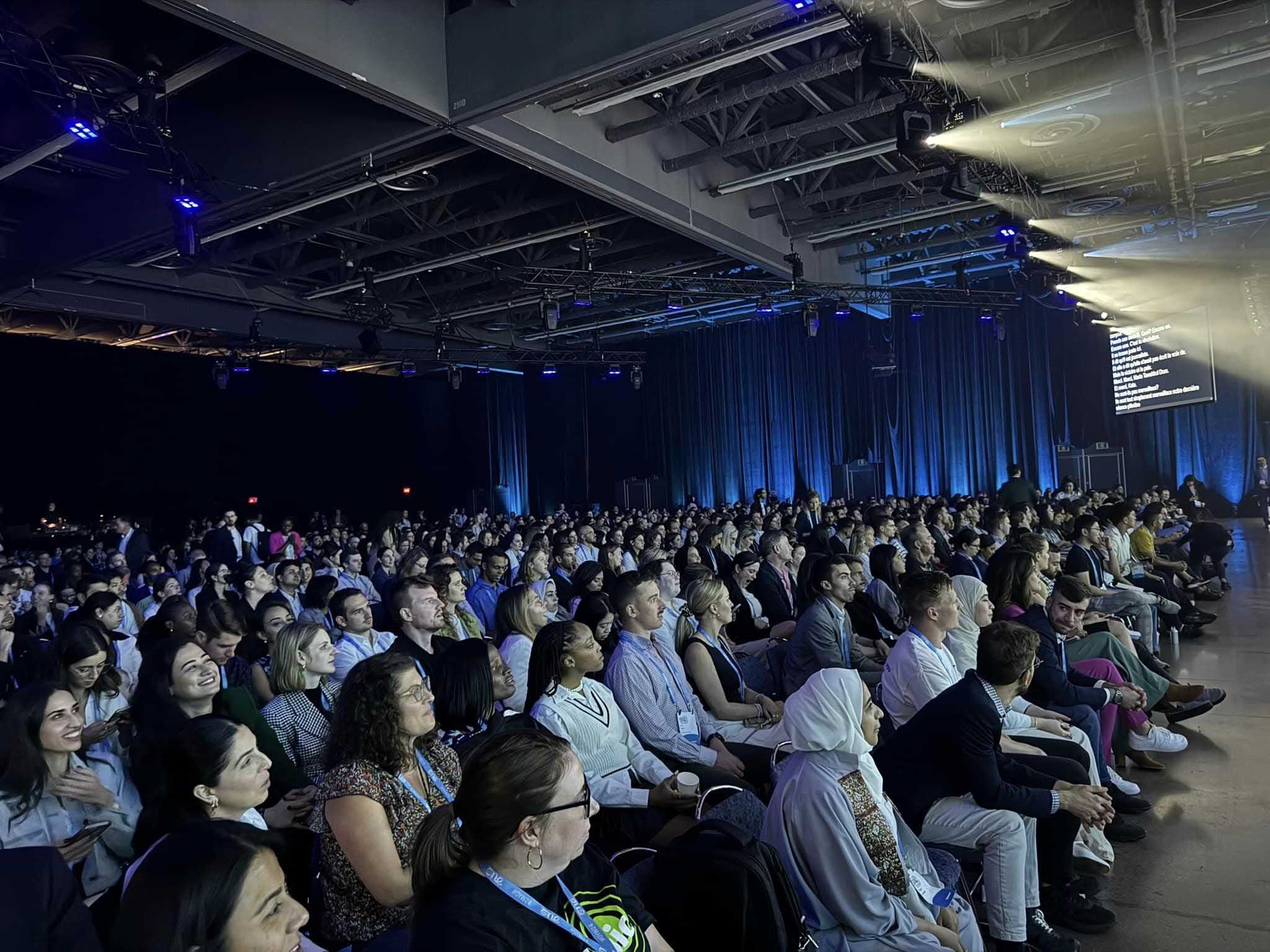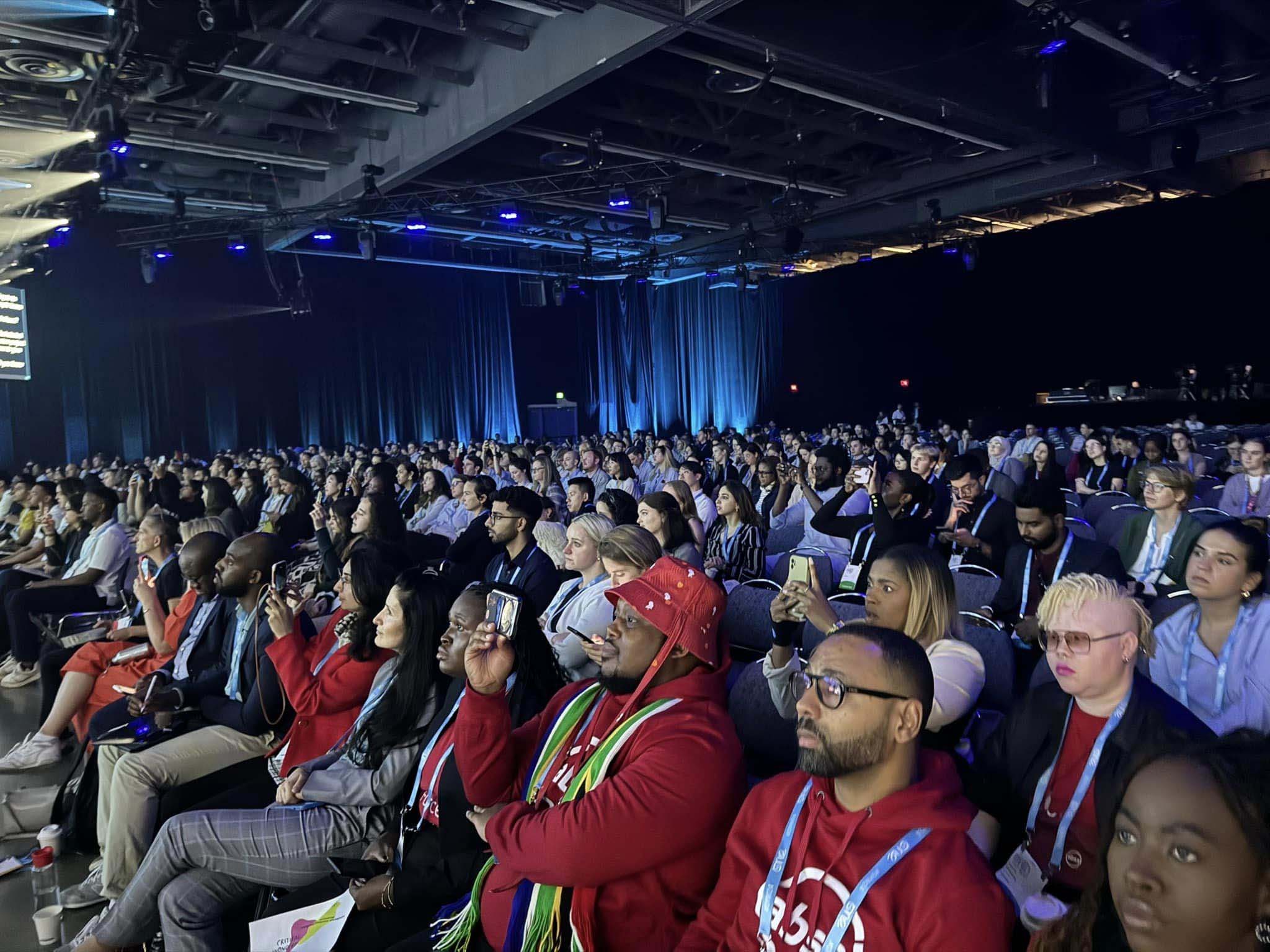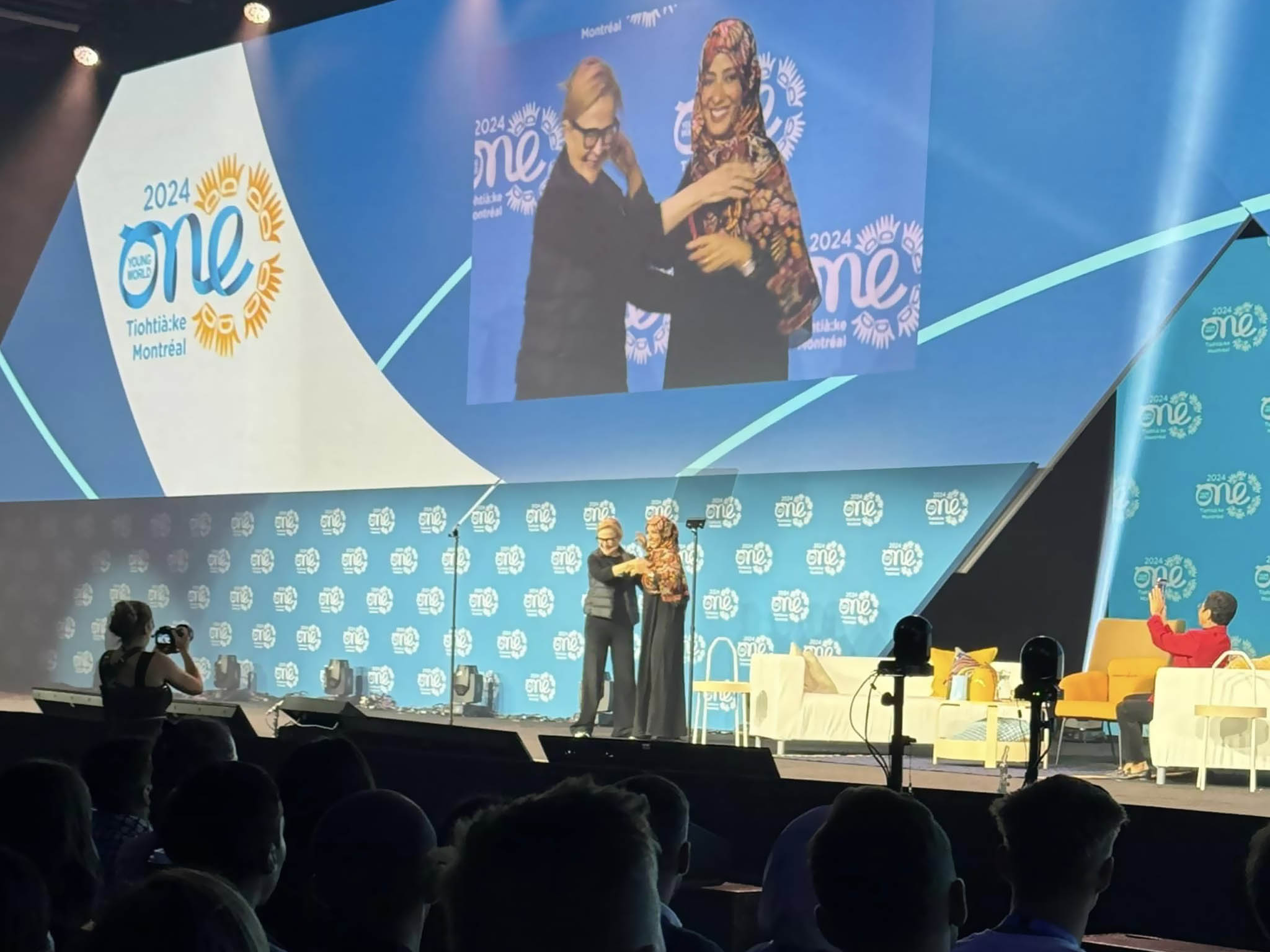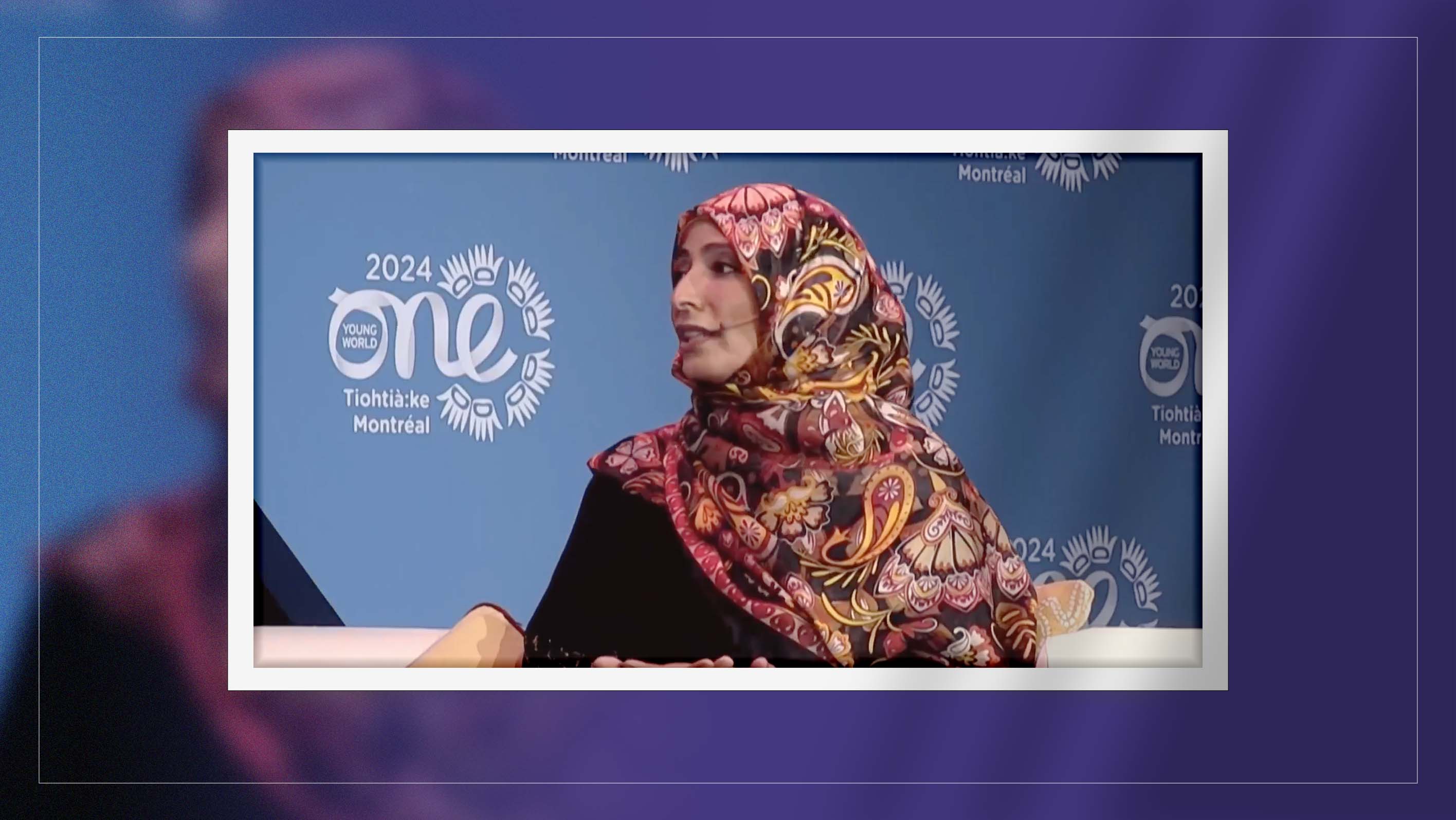During the One Young World Global Summit hosted in Montreal, Canada, on September 21, 2024, Nobel Peace Prize laureate and human rights advocate Tawakkol Karman delivered a powerful speech, emphasizing the need for young people around the world to confront pressing challenges and raise their voices to effect change.
Karman expressed her excitement to address young leaders for the third time, highlighting her deep connection to the community and its youth. She underscored their vital role as future change-makers, stating that the summit was not just a networking opportunity but a platform for meaningful dialogue and action.
In her remarks, Karman identified climate change as a critical challenge threatening humanity, urging attendees to take responsibility for combating global warming and advocating for ecological preservation. “You possess the power to create change,” she declared, encouraging young people to raise their voices against destructive practices by governments and corporations.
She also addressed the alarming rise of authoritarianism and the erosion of human rights values worldwide. Karman noted that democracy is under threat not only in regions struggling for freedom but also in established democracies like the United States, Canada, and several European nations. She called on the youth to resist hatred and injustice, positioning them as key figures in the fight against dictatorship and corruption.
Reflecting on her own journey, Karman recounted her activism against the Yemeni dictatorship, emphasizing the importance of believing in one’s capacity to effect change. She cited the ongoing human rights crises in Gaza, Ukraine, and various African nations, calling for an end to the violence and exploitation perpetuated by powerful entities.
Karman urged the youth to challenge the growing wealth gap exacerbated by globalization, advocating for equality in access to education, healthcare, and essential services. She emphasized that democracy is a universal right, deserving of protection and promotion by all nations.
As future leaders, Karman encouraged attendees to confront the misuse of power, particularly in global governance structures like the United Nations Security Council. She called for collective action to ensure that all nations have a voice in decision-making processes.
In closing, Karman reminded the young leaders of their potential to drive significant change and urged them to hold their governments and corporations accountable for their actions. “If you remain vigilant and courageous, you can help solve the world's problems,” she concluded, inspiring the next generation to take bold steps toward a brighter future.
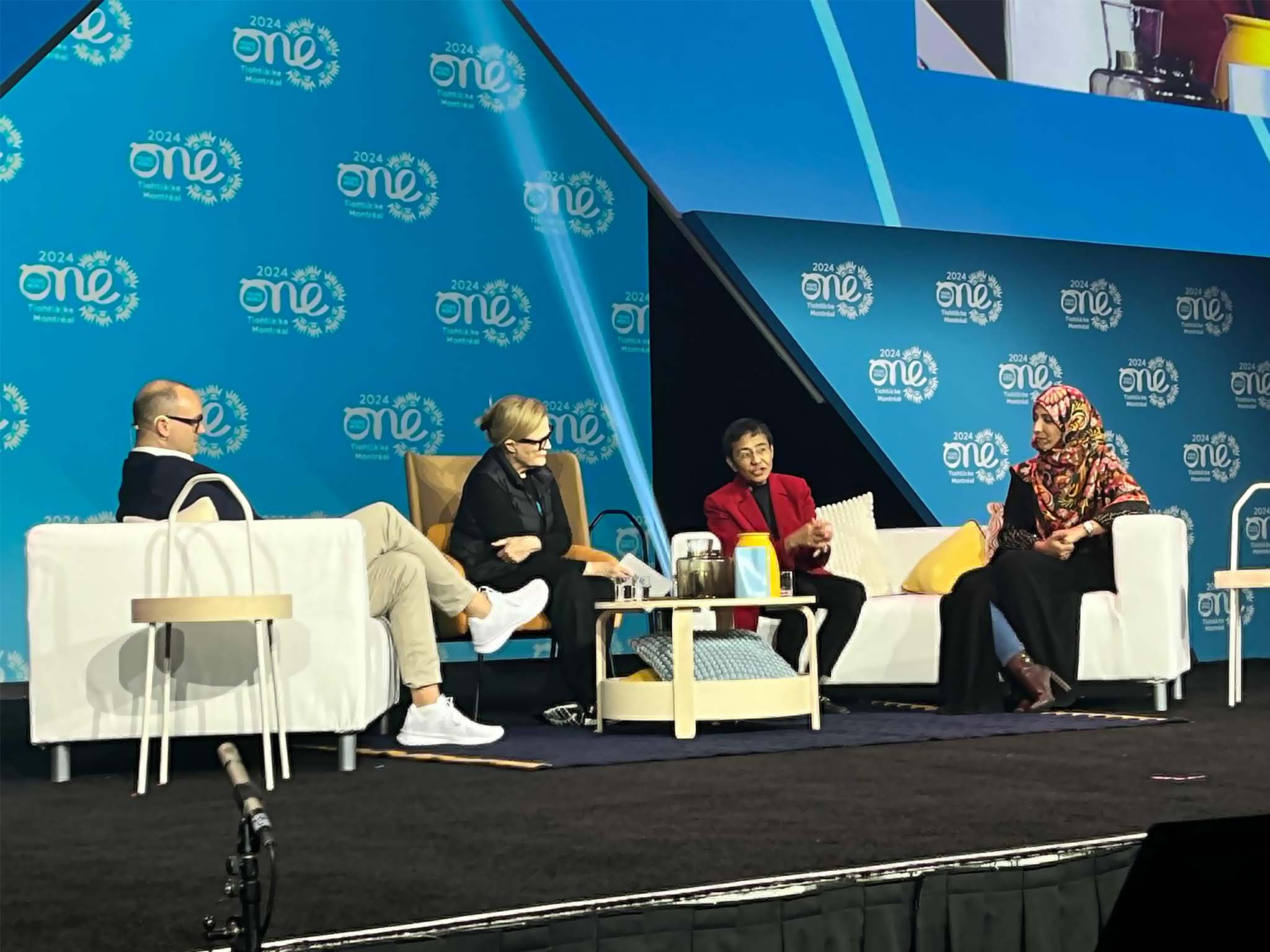
Panel Discussion
Before delivering her speech, Nobel Peace Prize laureate Tawakkol Karman participated in a panel discussion at the One Young World Summit titled “Fratelli Tutti/Peace is Possible - Engaging Young Leaders in a Global Movement for Peace.” Alongside fellow laureate Maria Ressa, Karman discussed their roles during the Second World Meeting on “Human Fraternity” held at the Vatican.
Karman reflected on her collaboration with Pope Francis in preparing the "Human Fraternity" declaration, emphasizing that it redefines youth, peace, justice, and democracy. She articulated that peace should not merely be viewed as the absence of war, but as the presence of dignity, the rule of law, and environmental protection, broadening the concept of fraternity.
Expressing her joy as a Muslim woman working with diverse faiths, Karman noted the importance of collective efforts to create a better future for the next generation. She acknowledged her initial apprehension about participating in discussions among religious leaders but clarified that true peace requires a struggle for democracy, freedom, and development.
Karman advocated for the inclusion of youth in decision-making processes, emphasizing that no group, including women and minorities, should be marginalized. She highlighted the contributions of Professor Muhammad Yunus, who expressed optimism about the potential for freedom and democracy in Bangladesh, attributing this to the sacrifices of young people.
Addressing the implementation of the "Human Fraternity" document, Karman stressed the necessity of stopping wars and conflicts globally, asserting that this is essential for true brotherhood. She posed critical questions about promoting peace in the face of ongoing conflicts in Gaza and Ukraine, and famine in Sudan.
Karman underscored that to advocate for peace and brotherhood, one must confront the root causes of conflict, including dictatorship and occupation. In her response to a question about the essence of being human, she urged others to embrace their differences as strengths and to fight against injustice and corruption, calling for a united effort to solve the challenges facing humanity.

